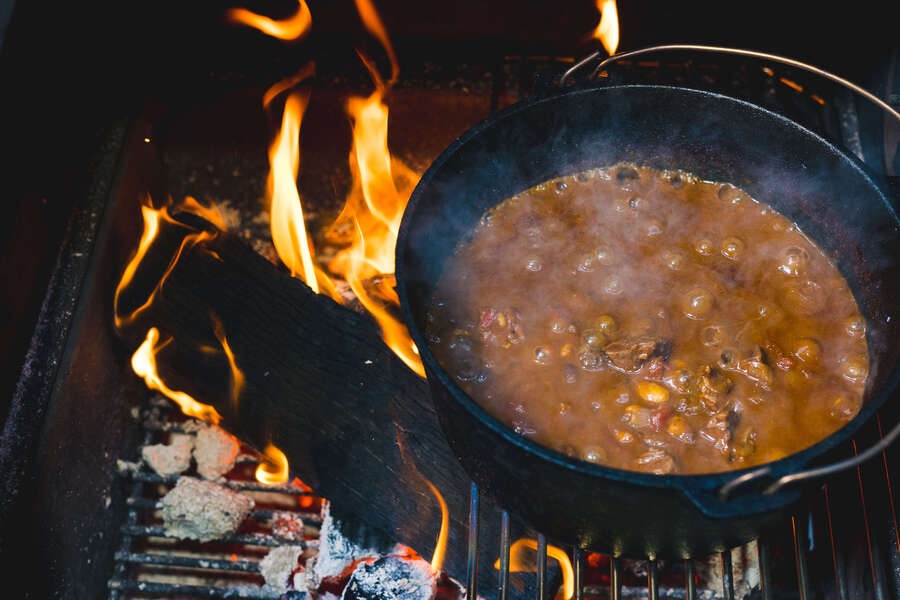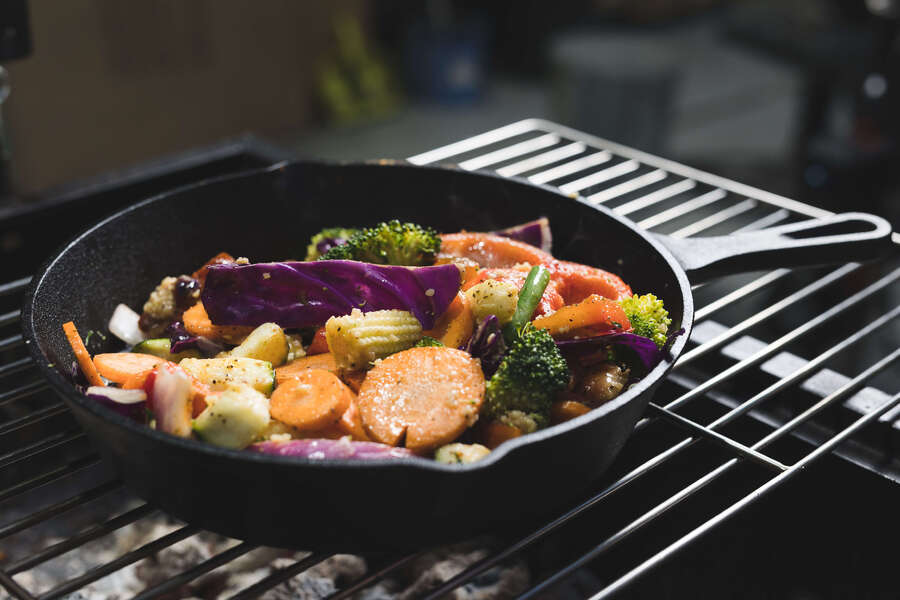Cast Iron Cookware: The Advantages, Disadvantages, and Everything Else You Should Know
.jpg)
Cast iron cookware is a type of kitchenware that has been around for hundreds of years. It's built of cast iron, which is a long-lasting and durable material that can handle high temperatures. This blog post will go through the benefits, drawbacks, and anything else you need to know about cast iron cookware.
I. Introduction
Cast iron cookware has been used for hundreds of years in the kitchen. It is well-known for its toughness, heat retention, and even heating. Cast iron cookware is versatile and may be used for a wide range of cooking methods such as frying, baking, and roasting.
II. Pros of Cast Iron Cookware
A. Longevity and Durability
Cast iron cookware is extremely sturdy and can endure for decades if properly cared for. It is resistant to chipping, cracking, and scratching.
B. Heat Retention and Even Heating

Cast iron cookware retains heat efficiently and warms evenly. This implies that food cooks more uniformly and remains warm for longer periods of time.
C. Chemical-Free and Toxic-Free
Because it is non-toxic and chemical-free, cast iron cookware is a healthy cooking alternative. It does not contain any of the dangerous chemicals found in many nonstick cookware.
D. Versatility
Cast iron cookware is suitable for use on all types of cooking surfaces, including gas, electric, and induction. It is also suitable for a number of cooking methods such as frying, baking, and roasting.

E. Added Nutritional Value
Cast iron cookware can improve the nutritional value of your meals. It releases trace amounts of iron into your meals, which can help people who are iron deficient.
III. Cons of Cast Iron Cookware
A. Heavy Weight
.jpg) Cast iron cookware is heavy and can be difficult to use, especially for those suffering from arthritis or other hand conditions.
Cast iron cookware is heavy and can be difficult to use, especially for those suffering from arthritis or other hand conditions.
B. Prone to Rusting and Sticking
If not properly cared for, cast iron cookware can rust and food may stick to the surface if not properly seasoned.
C. Requires Special Care and Maintenance
Cast iron cookware requires specific care and upkeep to stay in good condition. This involves seasoning, cleaning, and correctly storing the cookware.
D. Not Suitable for Certain Types of Cooking
Cast iron cookware should not be used to cook acidic foods such as tomatoes or citrus because it can react with the acid and change the taste of the food.
IV. Everything Else You Need to Know
A. How to Season Cast Iron Cookware
To season cast iron cookware, rub a small quantity of oil into the surface and bake it for roughly an hour at a high temperature.
B. How to Clean and Care for Cast Iron Cookware
Use a soft sponge or brush to clean cast iron cookware and avoid using soap. After washing, thoroughly dry the cookware and rub just a little oil on the surface to prevent rusting.
C. Different Types of Cast Iron Cookware
Cast iron cookware comes in a variety of shapes and sizes, including skillets, Dutch ovens, griddles, and grill pans.
D. Tips for Cooking with Cast Iron Cookware
Preheat the cast iron cookware before adding the meal, use a lower heat setting, and avoid using metal utensils that can scratch the surface.
V. Conclusion
There are numerous benefits and drawbacks to using cast iron cookware. It is long-lasting, versatile, and healthy, but it demands careful care and upkeep. If you are thinking about buying cast iron cookware, be sure you understand the pros and downsides as well as how to properly care for it. With the proper attention.
Check out our range of Cast Iron Cookware
Check out our Recipe Blogs
.png)
by: Michael Wilkie
